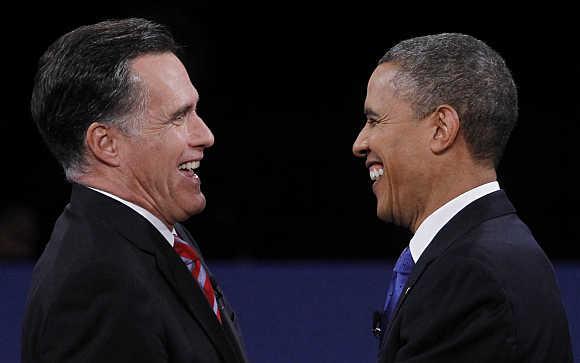
Watching the three presidential debates and the vice-presidential debate in the US over the last three weeks, many noticed there was virtually no mention of India.
In nearly 360 minutes of debate time, and with the third and final debate last week dedicated exclusively to foreign policy, India was mentioned a grand total of one time, and that too sandwiched between a reference to China and Germany on the topic of outsourcing jobs outside of the US.
At a time when India is making significant strides towards globalising its economy and with some of its stringent FDI and corporate commercial regulations being revamped, it is interesting not just that India doesn't figure in any foreign policy mandate, but it isn't even mentioned among the many legitimate threats to the US economy.
...
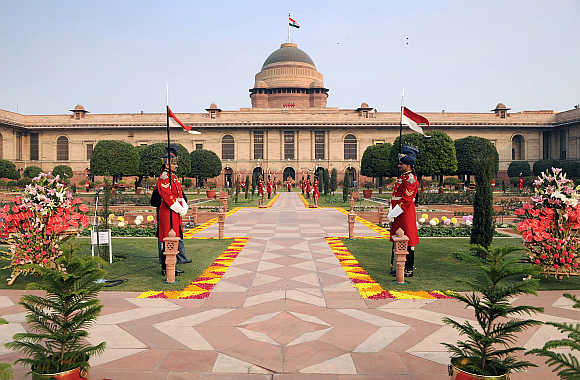
There is of course a positive in that there is no cooling of vastly improving bilateral ties between India and the US, but there was a time not so long ago that the Indian economy and the focus on outsourcing jobs and processes had become a talking point and policy mandate for any politician in North America and the EU.
It's almost easy to forget the irreverent memorandum 'Hillary Clinton (D-Punjab)'s personal financial and political ties to India' that was leaked out to the press during the Democratic primaries in 2008, when Barack Obama and Clinton were embroiled in a toss-up tussle that could have gone either way right until the finish-line.
Obama immediately distanced himself from it, but the importance that India played in world policy or in domestic economy-related concerns was nmistakeable at the time.
...

At the time, India was universally considered to be growing and vibrant, and as a potential security ally of the US when it came to strife in the Middle East and Afghanistan. Much, clearly, has changed since 2008 in how India is perceived.
Still, the advantage of taking India for granted then and now is that India is a complete and comprehensive democracy. It is a liberal nation that has its share of issues, but for the most part has an educated middle class friendly towards Europe and North America.
Its influence on America's pop culture and society, however, continued to be little more than tongue-in-cheek.
...
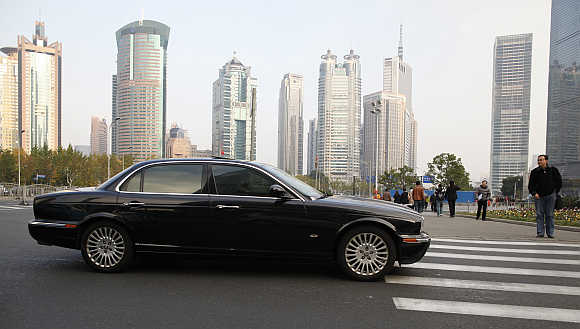
And, as the Indian economy hurtles towards a downturn of sorts, India is clearly not seen as an economic threat to the US, the way that other parts of the world - most especially China - are.
As China most definitely is. While China may also incur the wrath of American presidential candidates as the import-export parameters remain hopelessly skewed in its favour, it's clear that China is seen both as a fiscal superpower, and culturally distinct and aloof from the west, unlike India.
...

India is more likely than not irrelevant in 2012 despite its size and potential. This is something of a change from the past, and should worry us somewhat. It's better to be seen as a rival or competitor in economic matters than to be ignored altogether.
Even as an outsourcing hub, India was now compared to Germany by President Obama - a suggestion that the image of the country as a trade threat or competitor has taken a bit of beating. Even more surprising is the absolute silence of this year's Democratic campaign regarding the long-demanded opening of the Indian markets to American manufacturers and exporters.
...
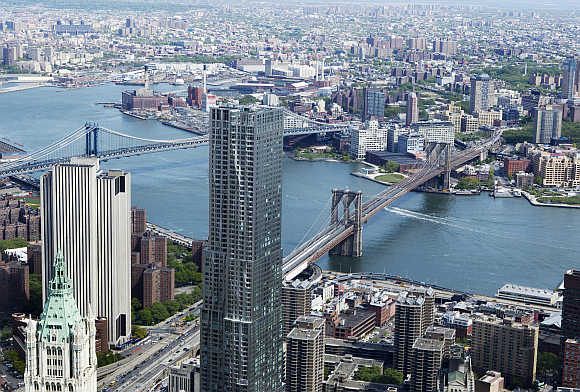
China continues to be accused of currency manipulation or unfair trade practices. However, trade practices from India also singled out, once, as "unfair", are no longer even mentioned. For US exporters, entering the Indian market - and not just in multi-brand retail - would have been considered a significant victory by the US.
While these arguments have their own logic, it is also true that by remaining silent about India, the US presidential candidates were unwittingly acknowledging the permanence of Indian-Americans to that country's politics, culture and society. Today, Indians are probably the most significant homogenous cultural and ethnic community in America out of those countries that don't share a border with the US (that is, Canada or Mexico).
...

And, there is Indian representation all across the political, societal and cultural map in North America. Even a possible future standard bearer of the Republican Party is of Indian origin, although his accent and extreme conservative beliefs may not reflect it.
Bobby Jindal, the governor of Louisiana continues to be speculated about as a future presidential nominee even though his hesitant response to President Obama's rousing State of the Union address in 2009 somewhat derailed his ascent.
People of Indian origin are, more than ever, embedded in the US- the very point the "Clinton or Punjab" memo, in some ways, made.
...
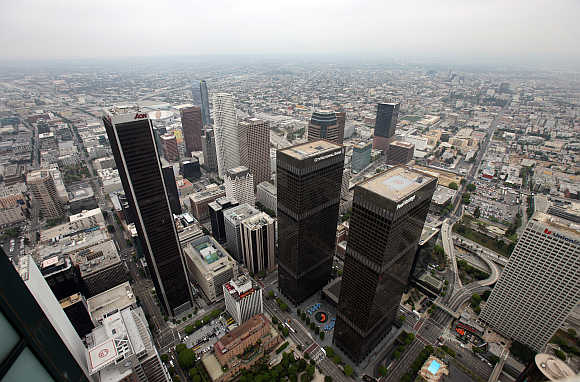
While it might be easy to see the declining relevance of an imagined economic challenge from India to American domestic politics as a symbol of India's own decline - or as a reflection of the somewhat unclear positioning of India's economic and security alliances with the US, we should not overlook this increasing embeddedness of Indian-Americans in US political and social structures as another possible cause.
Indeed, we should hope that that is the main reason why India was the 1.2 billion-pound elephant in the room that no one bothered to acknowledge or reprimand.
If not, then we should instead be worried - because irrelevance on the world stage does not a world power make.
The author is an attorney